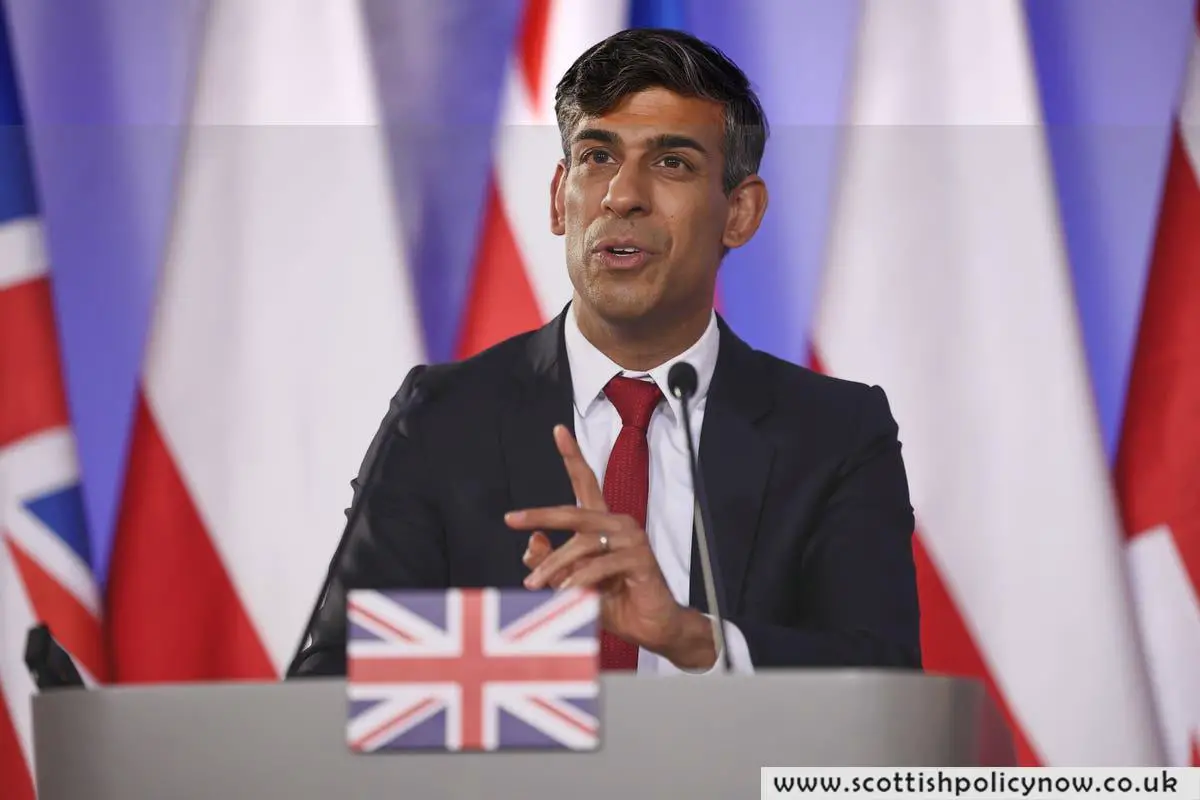The UK government’s outdated assault on employment rights, illustrates a growing gap in the industrial relations culture between Scotland and England.
In the 1990’s, I was a union organiser covering the Southern General Hospital in Glasgow. Industrial relations was of the shouty type, mostly conducted through the pages of the Glasgow Evening Times. One ritual was to take a photo of the Chief Executive’s new BMW to illustrate the gap between management and the workforce.
I recalled this recently when visiting the newest and biggest hospital in the UK, the Queen Elizabeth University Hospital, built on the old SGH site. I was there for the opening, by our General Secretary Dave Prentis, of the UNISON Resource Centre, smack bang in the main reception area. Every visitor to the hospital is left in no doubt of the central role of the trade union in the hospital. Similar facilities exist in other major hospitals.

And who should be one of the first people to be there to celebrate the opening? None other than the very BMW owning SGH Chief Executive who now heads up NHS Glasgow and Clyde Health Board – Bob Calderwood.
He hasn’t been the only one to make an industrial relations journey. Following devolution in 1999, the Health minister, Susan Deacon, introduced a new strategic human relations strategy, and I was seconded into the health department as the implementation manager. This started the process of a culture change to partnership industrial relations that has been recognised as world leading. According to the findings of a two-year report post-devolution healthcare in Scotland represents a “groundbreaking” approach to the art of industrial relations. It has taken “arguably the most ambitious labour-management partnership so far attempted in the UK public sector” and made it work.
… the process of a culture change to partnership industrial relations that has been recognised as world leading.
It didn’t happen overnight, but union officials and managers have made big changes. It doesn’t mean that that both sides don’t disagree, but there is an early engagement with the unions and the workforce that would have been unimaginable in the early 1990’s.
While the NHS is the best example of a different approach to industrial relations, it wasn’t an isolated one. One of the early actions of the post-devolution Labour led administration was a Memorandum of Understanding between the trade unions and the Scottish Government. This provided for regular and early engagement and was a huge culture change for both civil servants and union officials after the Thatcher years.
The first SNP administration continued this approach and the recent Mather Commission ‘Working Together’ report sets out how industrial relations in the public and private sector has developed in Scotland since devolution. Not that it is the finished product. The report sets out 30 recommendations for developing industrial relations and creating fairer employment practices in Scotland. The Scottish Government accepted the report and has established the Fair Work Convention to take the recommendations forward.
Contrast what has been happening in Scotland since devolution with the latest Tory attack on industrial relations. Led by ministers who have little personal experience of real workplaces, who listen more to the hedge fund managers who donate millions to their party coffers, than real world organisations. Hedge funds view unions and the workforce as an obstacle to their short-term asset stripping that reflects all that is wrong with our economy.
The government is planning a new 50% threshold for strike action, in a bid to prevent working people from withdrawing their labour. This reeks of hypocrisy from a government elected with 36 per cent support of the 65 per cent of people who voted in the general election. Their plans might have a little more credibility if they allowed trade unions to ballot their members in a more modern way. In a society where people bank online, why can’t members cast their ballots on the internet? However, the government isn’t interested in increasing the say of working people, they simply want to encroach on workplace democracy.
The same is true for their plans to ban deductions of union dues from pay (DOCAS) and cutting facility time. They hope this will cut the membership of trade unions, particularly in the public sector, in preparation for their latest slash and burn attack on public services. The proposals on political funds are simply a partisan attempt to undermine the opposition, particularly when there are no equivalent constraints on the Tories big business funding. Trade union political funds are already highly regulated and are the most transparent source of political funding in the UK.
… Contrast what has been happening in Scotland since devolution with the latest Tory attack on industrial relations.
Recent academic research shows the value of a constructive approach to industrial relations and in particular the role of union representatives. When focusing on NHS workplaces in particular, the research showed that labour turnover was almost three times higher and the employment tribunal rate 14 times higher in NHS workplaces without union representatives compared to workplaces where representatives were present. Managers in NHS workplaces with union representatives present were more likely to report higher productivity, greater quality of services and ‘better’ financial performance.
In Scotland, this approach to industrial relations has cross party support. The SNP has described the Tory plans as ‘Dickensian’ saying, “Trade unions are key social partners and play an important role in our society through effective democracy, helping ensure good employment practices which directly promote economic competitiveness, and social justice in wider society.”
All four UK Labour Leadership candidates have criticised the plans with the interim UK Labour leader accusing the government of, “attacking the right of working people to have a say on their pay and conditions.”
Even the Tories in Scotland have demonstrated a more modern approach to industrial relations. Murdo Fraser MSP recently wrote, “as Conservatives we should not be afraid to celebrate the role of trade unions, and work with them when we can to deliver a stronger, wealthier, happier and more secure work force. It must be in everyone’s interests.”
This different approach to industrial relations in Scotland has been reflected in calls for employment law to be devolved to the Scottish Parliament – long before the latest Trade Union Bill. The STUC and most trade unions in Scotland recognise that we need an employment law framework that is consistent with our industrial relations and fair work policies. The UK Tories retro plans to take employment rights back a generation only reinforces this view.
The debate will be taken forward in the Scotland Bill and I hope will feature in manifestos for next year’s Holyrood elections. Not just as a call for more powers, but to ensure that we use the powers we have to take forward the recommendations of the Mather Commission.
Scotland has been developing a positive industrial relations and fair work culture, while recognising that there is more to be done. The UK government wants to take this agenda back a generation and that will only strengthen the case for further devolution.
Dave Watson is UNISON Scotland’s Head of Bargaining and Campaigns









